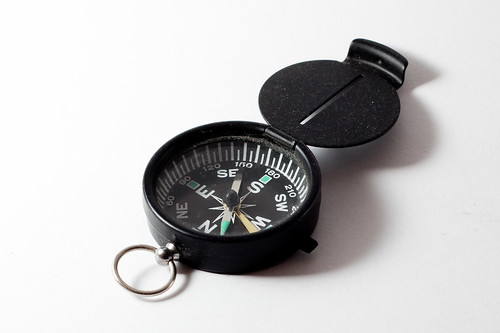Spiritual Direction: Wisdom for the Long Walk of Faith is divided into three main parts - Look Within the Heart, Look to God in the Book, Look to Others in Community. Chapter 1 of Look Within the Heart asks - "Who will answer my questions?" Nouwen uses the following parable:
Many years ago, there was a young man who searched for truth, happiness, joy, and the right way of living. After many years of traveling, many diverse experiences, and many hardships, he realized that he had not found any answers for his questions and that he needed a teacher. One day he heard about a famous Zen Master. Immediately he went to him, threw himself at his feet, and said: “Please, Master, be my teacher.”
The Master listened to him, accepted his request, and made him his personal secretary. Wherever the Master went, his new secretary went with him. But although the Master spoke to many people who came to him for advice and counsel, he never spoke to his secretary. After three years, the young man was so disappointed and frustrated that he no longer could restrain himself. One day he burst out in anger, saying to his Master: “I have sacrificed everything, given away all I had, and followed you. Why haven’t you taught me?” The Master looked at him with great compassion and said: “Don’t you understand that I have been teaching you during every moment you have been with me? When you bring me a cup of tea, don’t I drink it? When you bow to me, don’t I bow to you? When you clean my desk, don’t I say: ‘Thank you very much’?”
The young man could not grasp what his Master was saying and became very confused. Then suddenly the Master shouted at the top of his voice: “When you see, you see it direct.” At that moment the young man received enlightenment.
The parable is a bit strange; all parables are. I haven't received enlightenment; not by a long shot. The gist of the chapter is "Ask and live the questions" - so even the opening question - "Who will answer my questions?" - must be lived, not answered. I'm trying to do some of that. I made a list of who could simple be present with me as I ponder the questions of my life, without trying to answer my questions for me. My list includes some family, friends, and pastors, and excludes some family, friends, and pastors. My list includes some Catholics, some Protestants, and excludes some Catholics, some Protestants. Some Catholics would too quickly and easily say 'the Church' is the answer to my questions; while some Protestants would too quickly and easily say 'the Bible' is the answer to my questions. The problem with both of these answers is they are not personal. Both the Church and the Bible as personifications of theology and of Truth. The Bible and the Church are institutions of people who lived and live the questions.
Some of my questions right now are:
- Is there a God?
- What does God want from me?
- What is the Church?
- What is sin?
The other half of that Nouwen quote is, "More often, as our questions and issues are tested and mature in solitude, the questions simply dissolve." And so I go on personifying and living my questions - these questions and others. I am eager to ponder and live my questions with others, but not with those who might dictate my life with easy or simple answers.

